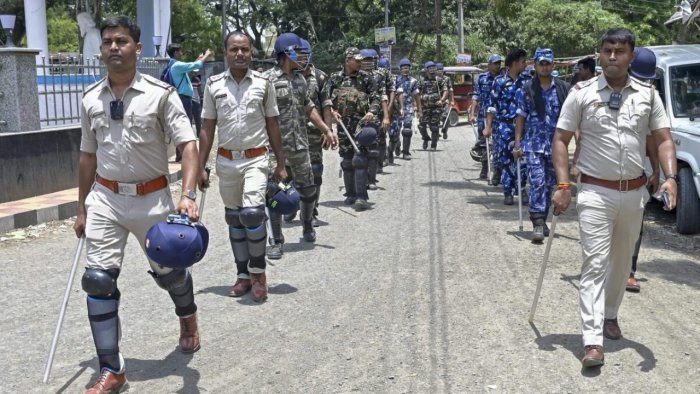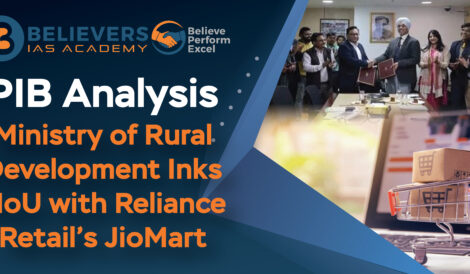Link Between Peace and Free and Fair Local Body Elections
Context:
The upcoming local body elections in West Bengal, which have been marred by political violence, are facing significant challenges in ensuring free and fair elections
Relevance: GS-02 (Governance, Challenges in democratic decentralization)
Mains Questions:
Discuss the significance of peace in ensuring free and fair elections and the importance of deployment of central forces contribute to maintaining law and order during elections? (250 words)
Prelims:
- Article 324 – Vesting Election Commission with Authority over Elections.
- Article 325 – Ineligibility for Special Electoral Roll Based on Religion, Race, Caste, or Sex.
- Article 326 – Basis of Elections: Adult Suffrage for House of the People and State Legislative Assemblies.
- Article 327 – Parliament’s Power to Enact Laws on Legislature Elections.
- Article 328 – State Legislature’s Power to Enact Laws on Legislature Elections.
- Article 329 – Restriction on Court Interference in Electoral Matters
Dimension of the Article:
The article aims to provide a comprehensive understanding of the interdependence between peace and the successful conduct of local body elections-
- Political Violence and its Implications
- The Role of Central Forces
- Challenges Faced by Opposition Parties
- Protecting Democratic Decentralization
- Measures that can be taken:
Political Violence and its Implications
- Instances of political violence leading to fatalities since the notification of the polls.
- The State Election Commission (SEC) and the West Bengal government have approached the Supreme Court to challenge the Calcutta High Court’s order, which directed the deployment of central forces in all districts.
- Resource constraints faced by the State government and the SEC highlight the need for external support to ensure the smooth conduct of elections
The Role of Central Forces
- The utilization of central forces during elections can aid in reducing violence and establishing a favourable atmosphere for unrestricted and equitable participation.
- The directive from the Calcutta High Court to deploy central forces, with the expenses covered by the Centre, should have been regarded as a viable resolution worthy of appreciation.
- The significance of central forces in upholding law and order is emphasized by the State Election Commission’s previous appeal for their presence during the 2013 elections.
Challenges Faced by Opposition Parties
- Analysis of the 2018 local body polls and the ruling party’s victories without contest.
- Reports of intimidation and instances where opposition parties are unable to submit nominations in specific areas, raising doubts about the fairness of participation.
- The Governor’s involvement in visiting areas affected by violence and setting up a control room for citizens to register complaints underscores the importance of unbiased monitoring and intervention in the electoral process.
Protecting Democratic Decentralization
- The three-tier panchayat system in West Bengal serves as a representation of democratic decentralization.
- The responsibility of political parties and stakeholders in upholding the integrity of the electoral process.
- The role of the Governor in addressing violence and creating a platform for citizen grievances.
Measures that can be taken:
- Strengthening security arrangements by deploying central forces and allocating necessary resources.
- Ensuring the fair participation of opposition parties through effective monitoring and intervention.
- Promoting awareness and adherence to democratic principles among all stakeholders.
- Facilitating an open and accessible platform for citizens to report grievances and address concerns related to the election process. e. Implementing reforms to curb political violence and establish a culture of peaceful elections.
Conclusion:
- The article highlights the crucial link between peace and the conduct of free and fair local body elections and the prevalence of political violence, the significance of central forces, the challenges faced by opposition parties, and the importance of preserving democratic decentralization for a peaceful electoral process.





